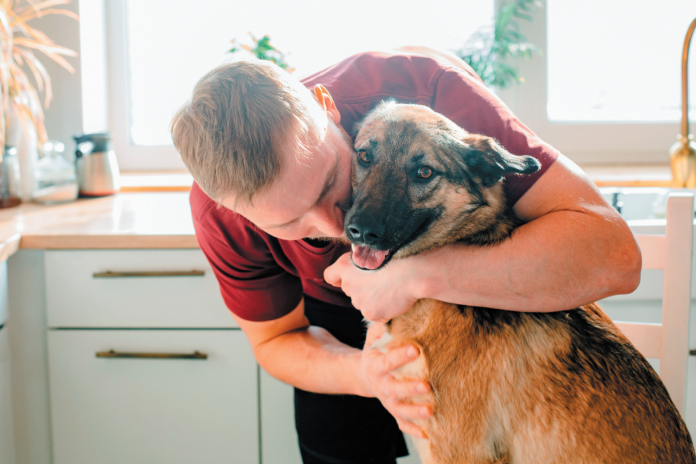We frequently say in Your Dog that to teach your pet a trick, you must reward him immediately after he follows through on the desired behavior. If you wait even 15 seconds, he will not know why you’re rewarding him and won’t be able to learn what you are trying to teach. It makes it seem as though dogs have very poor memories.
“But that’s not a memory issue,” says the head of the Tufts Animal Behavior Clinic, Stephanie Borns-Weil, DVM. “That’s a timing issue. If you say ‘Sit,’ and then go into the kitchen to get the treat, by the time you come back into the room and give it, the dog has looked right, looked left, blinked his eyes, licked his lips, scratched his nose, and perhaps yawned. He has done — and remembered — a dozen things in that time. He just doesn’t know which one of those things has earned him the treat. He’s being forced to try to figure out at random which action he’s being rewarded for. It’s like giving someone two pages of instructions on what to do and then rewarding them for doing one of those things without telling them which one. That’s a communication problem, not a memory problem.”
Sometimes, Dr. Borns-Weil says, a dog’s seeming not to remember something is a contextual issue. Dogs are very literal, she points out. “If you teach a dog in the quiet of your home to go lie down on his mat, he will learn to do it,” she says. “But if you bring the mat to Grandma’s house with the extended family there and then tell him to go lie on it, he may not. It’s not that he doesn’t remember the cue. He just may not know that it applies in that context, or he may be too distracted by the activity in the unfamiliar environment. You might need to train him in a variety of environments before he can generalize the instructions.”
What about memories of past experiences?
To figure out whether dogs have good memories outside of learning tricks, all you have to do is think about their recall ability. Dogs can find their way home from dozens or even hundreds of miles away after they have been lost for ages, Dr. Borns-Weil says. They remember people they haven’t seen in years. They remember where they hid things — or saw things. “I had one friend,” the doctor says, “who was walking her golden retriever home when the dog started pulling her toward a half sandwich in a takeout box that someone had left near a bench in the park they were ambling through. A couple of days later, the dog got out on her own. They found her three blocks away in the park, next to the remains of the sandwich.
“My patients remember me all the time,” Dr. Borns-Weil says, “even if they haven’t seen me in quite a while: ‘Oh yeah, that weird lady who gives me cheese for no apparent reason.’
“And then there are guide dogs who help blind people by remembering that a green light means go and a red light means wait, that the various walk/don’t walk signs indicate when it is safe to cross, and that cars turn even when the lights indicate that it is safe. And they have to recall these details in a variety of contexts. That’s pretty phenomenal.”
Of course, there is much we don’t know about how dogs build their memories or hold onto them, comments Dr. Borns-Weil. “We tend to remember primarily with words. Because dogs don’t have language, their memories are stored nonverbally. They also experience the world differently than we do, relying on senses such as smell that are very underdeveloped in people. So dogs will recall things in pictures or sounds or odors. Like us, they attach feelings to the memories but they don’t attach the narratives so common to human remembering.”
In other words, as Dr. Borns-Weil puts it, “dogs actually have powerful memories. They may just process them differently from the way do.”
Sometimes fear overrides memory for a dog. Let’s say you have an overnight guest. When the guest first comes into your home, your dog barks at the person and won’t come near; she is an anxious sort. But over the course of the day, the dog comes to trust the newcomer and allows herself to be petted and stroked. Everything is fine by bedtime.
The next morning, however, when the person gets out of bed, the dog starts barking all over again. It’s not that the dog doesn’t remember having met the guest the day before. It’s that other, more deeply rooted memories which have caused her to fear people are filling her mind. They’re out in front of the memory of the day before — at least for a time.





